What were your reasons for getting started with your photography? How, When & Why?
Growing up, my father was constantly making videos and taking photographs of my sisters and I. Naturally, I was always drawn to photography. At a younger age, making photographs was simpler, innocent. I didn’t worry about what it all meant. I just made pictures of whatever I wanted. It was not until after my foundation year at Parsons in New York that I realized I could study and pursue photography in my life. As much as I enjoyed other forms of creation, the photographic image was the most satisfying and challenging. I loved the immediacy of the moment of creation. There can be so much that happens before and after a photograph, yet the actual click of the shutter may only be a small moment.
What are the challenges you face, if any, as being an artist from Saudi Arabia, as a woman?
As a woman in Saudi Arabia, it is very difficult to be a fully independent person when photographing. One major reason being that women cannot drive in Saudi Arabia. In fact, women also cannot bike outside of public spaces and without a male guardian present. At times, it frustrates me as I cannot just get out on my own and drive endlessly, seeking something and nothing in particular. At the same time, it would be foolish to pretend such circumstances do not exist. I have come to see them as simply part of the current time. Maybe this will change. I certainly hope it does.
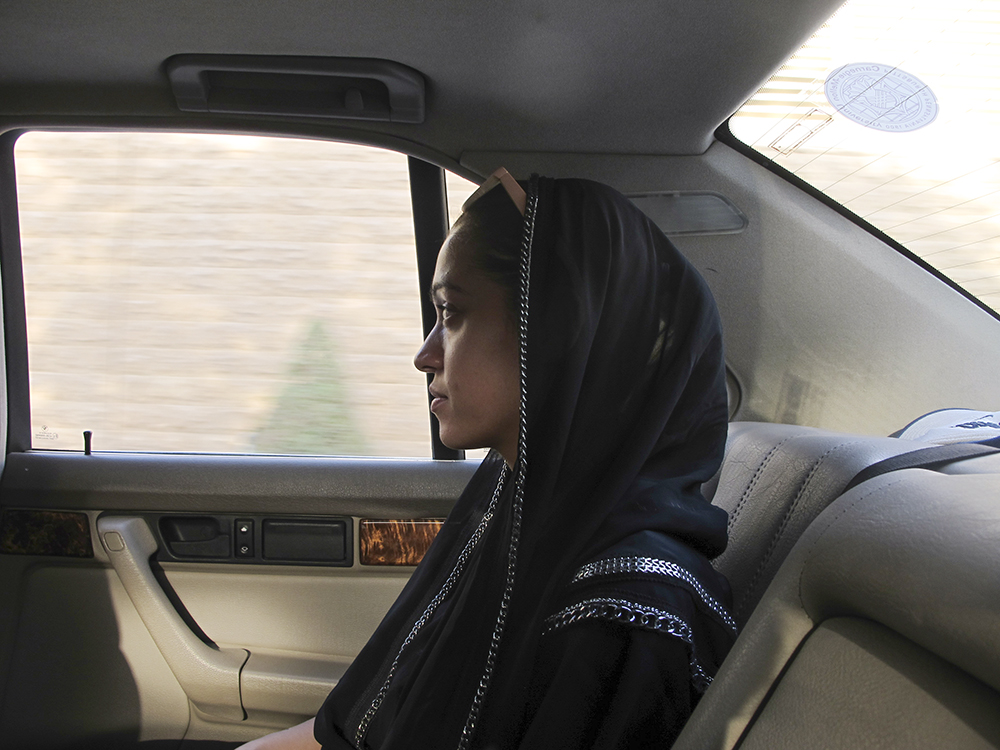
Untitled from the series "Saudi Snapshots" by Ayesha Malik
What is one major challenge you have faced while photographing in Saudi Arabia? And the opposite – a pleasant surprise?
When camera phones first came out, I remember they were banned at the mall.
These days, nearly everyone has an iPhone and nearly everyone is constantly “instagramming” and “whatsapping.” It has certainly helped make it easier when I ask strangers to be photographed. I am still met with hesitation at times, but for each person that says no, another says yes. Underneath the seeming privacy and conservative nature of Saudi society, I have found many of the people I photograph to be extremely open, expressive, and curious. I sense this energy of changing times. I recollect the way Saudi Arabia was 5 years ago, then 10 years ago. It keeps me excited because every time I make a photograph, the conversation gets bigger.
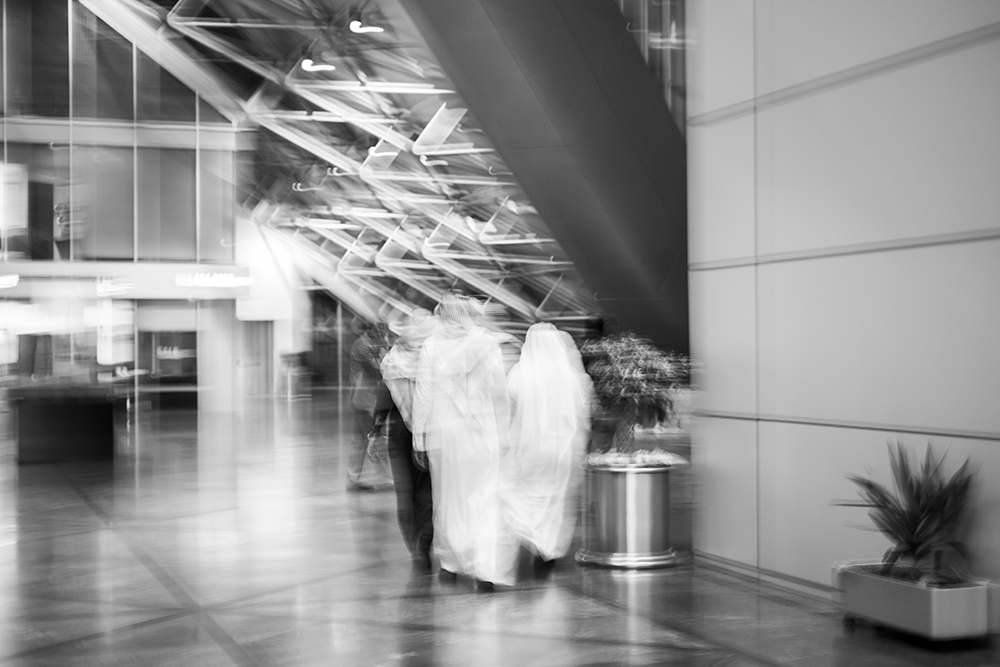
Al-Faisaliyah Hotel from the series "Saudi Snapshots" by Ayesha Malik
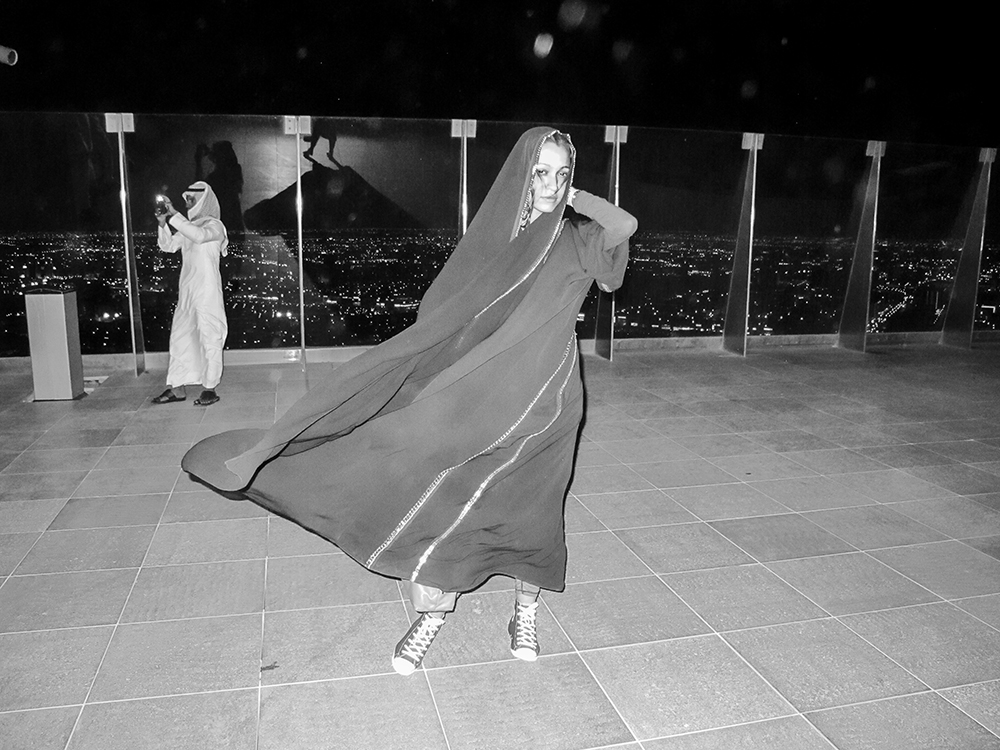
Top of Al- Faisaliyah Tower from the series "Saudi Snapshots" by Ayesha Malik
How do you feel looking at your work?
I am very hard on myself. I try and stay grounded in the moment of making a photograph. When I get caught up in all the details, I find I lose the essence, the joy of an experience that is really about so much more than photography. I realize I keep on making photos because I will never be fully satisfied and I will constantly be seeking a photo that I will never make. It is a beautiful and sad feeling all at once.
Do you see yourself as a global artist or identify with where you were born and where you live? Where do you relate to most in the global sense?
I find myself somewhere in between. I do not fully relate to any of the places I have grown to identify with. I am an American citizen, originally Pakistani, born and raised in Saudi Arabia on an American compound, and now working in New York City. However, when I say home, I am referring to Saudi Arabia, particularly the American compound I grew up on. It was the real life metaphor for the feeling of being neither here nor there. I had the “Saudi” world growing up, but I also had the “American” world mixed in with the “global” world.
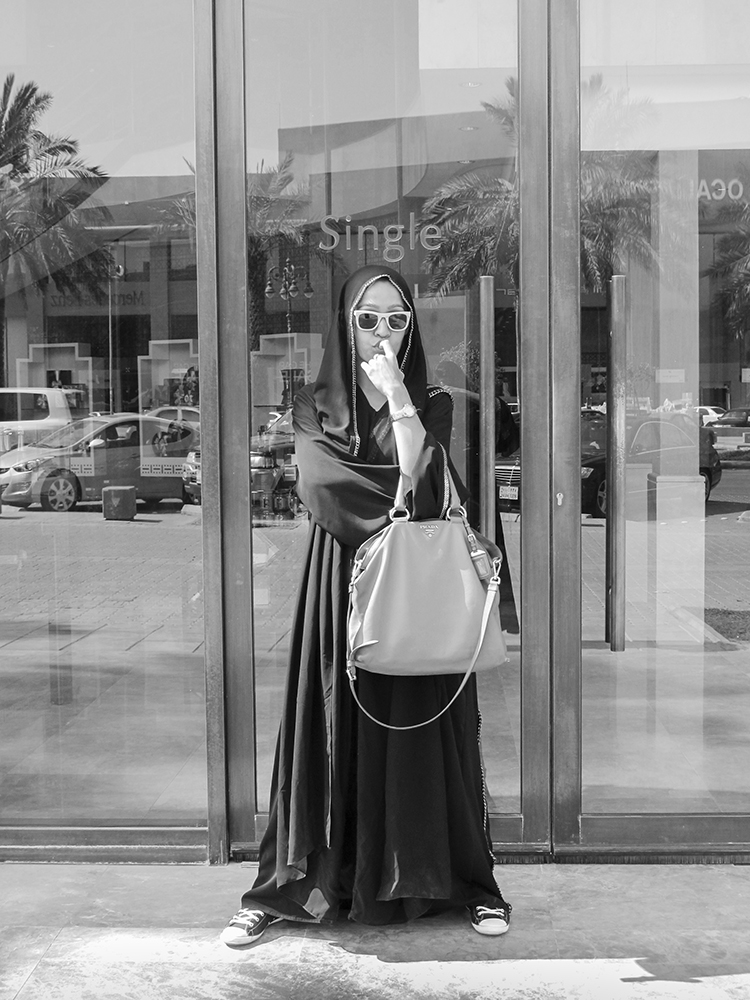
Singles entrance, Cafe Bateel from the series "Saudi Snapshots" by Ayesha Malik
Do you have any rituals in your daily life?
Everyday is different for me. At the moment I work for Ben Hassett, a beauty and fashion photographer in New York. I recently got my first surfboard so I am hoping to make that as much of a ritual as I can. Otherwise, there is an adventurous sensibility about change that I enjoy.
Do you have one ultimate goal through your work? What would you like your audience to perceive or feel when looking at your work?
I would love for people to consider the way in which they conquer understanding this world. We all have a tendency to define and confine people, places, and things in order to grasp them. I think that leaves us with a very limited view of an otherwise complex world. I do not wish to offer answers, as they will always prove to be meaningless. The world is always changing. I hope to raise more questions.
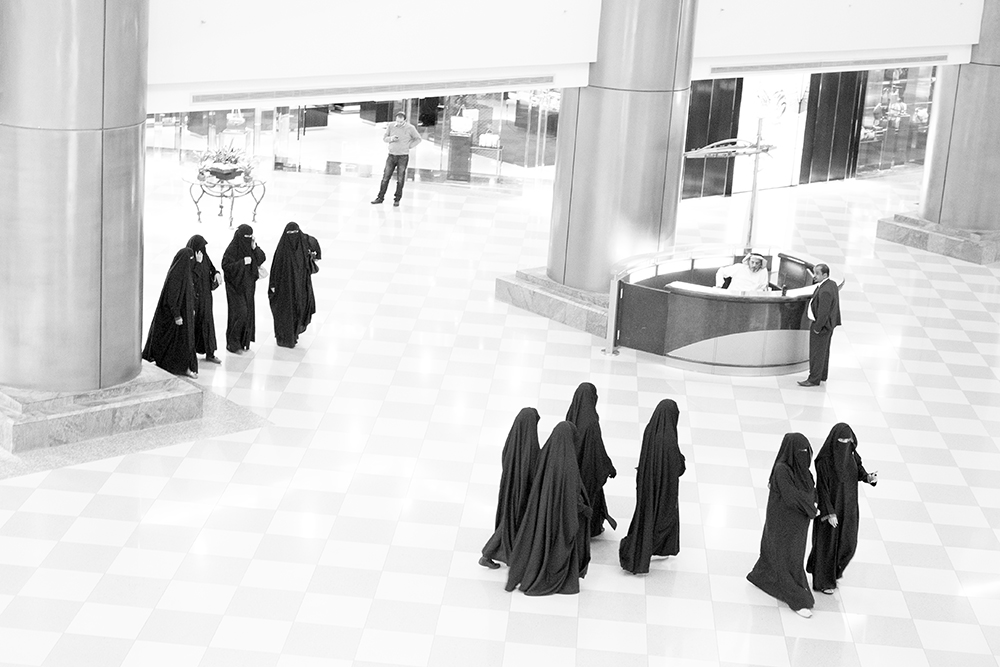
Centria Mall from the series "Saudi Snapshots" by Ayesha Malik
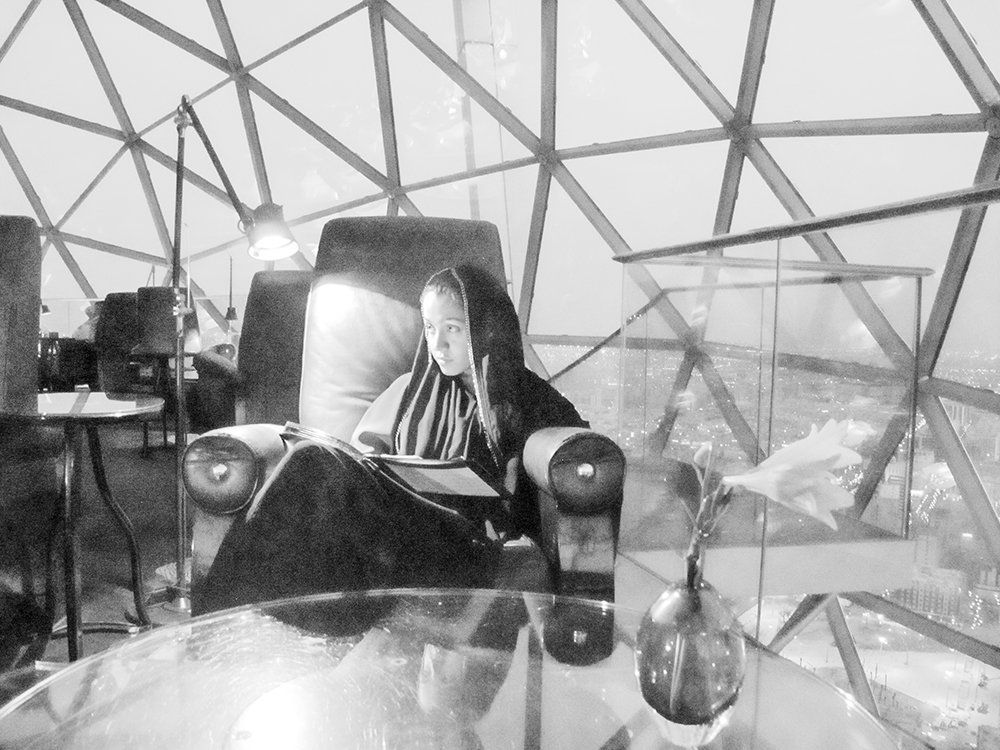 Tobacco Lounge from the series "Saudi Snapshots" by Ayesha Malik
Tobacco Lounge from the series "Saudi Snapshots" by Ayesha Malik
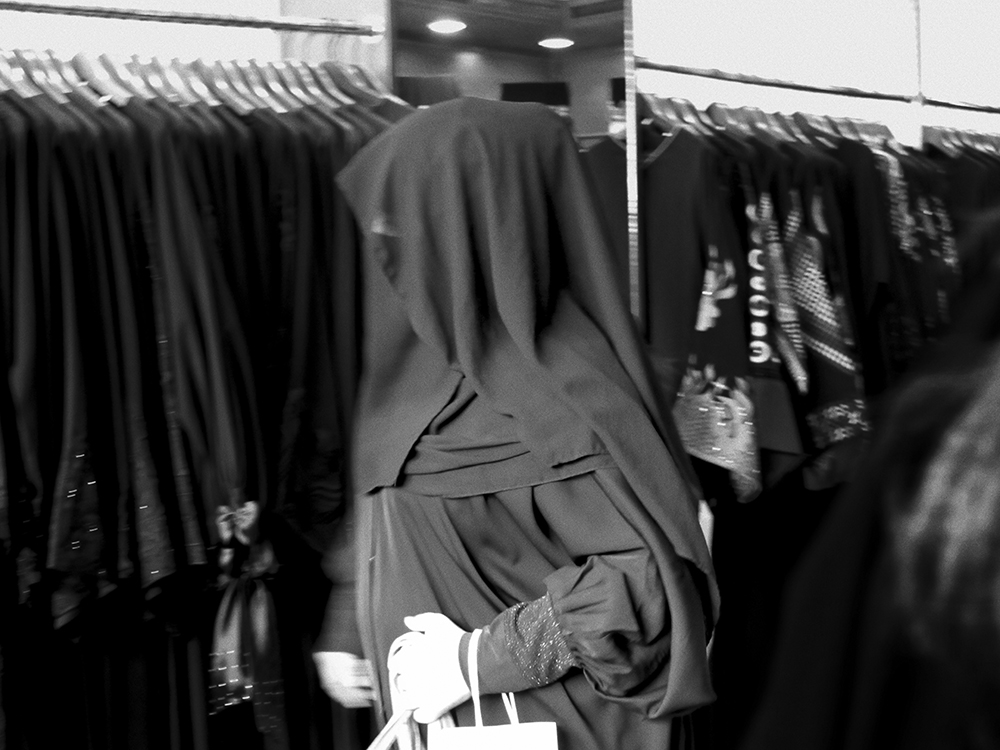
Abaya amidst Abaya's, Al-Suwaiket, Al-Khobar from the series "Saudi Snapshots" by Ayesha Malik
Interviewed by Sara Malik


